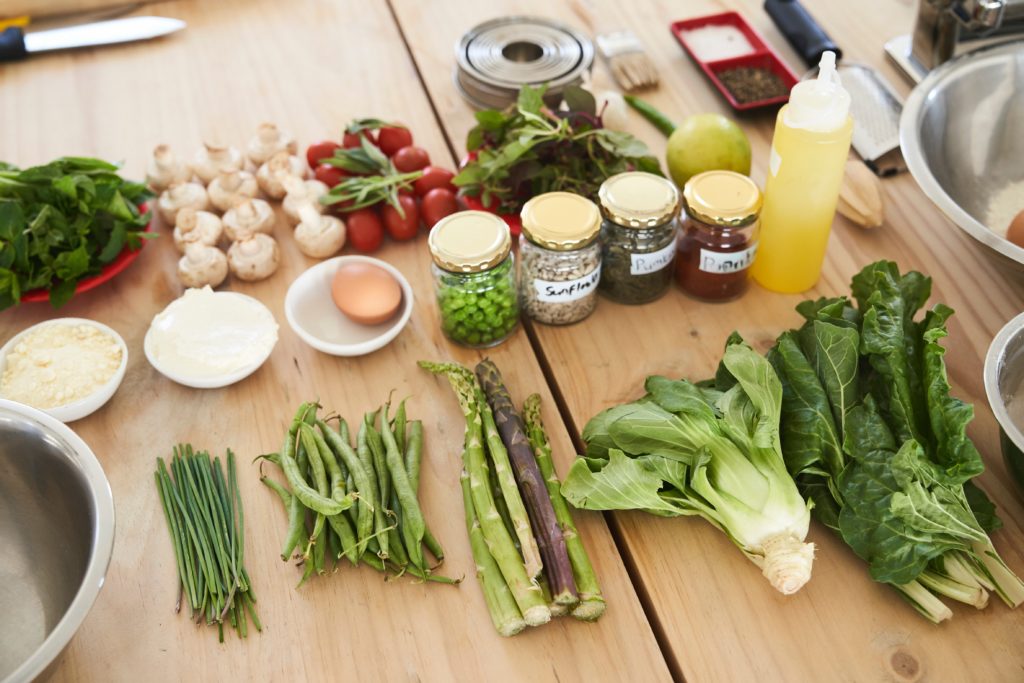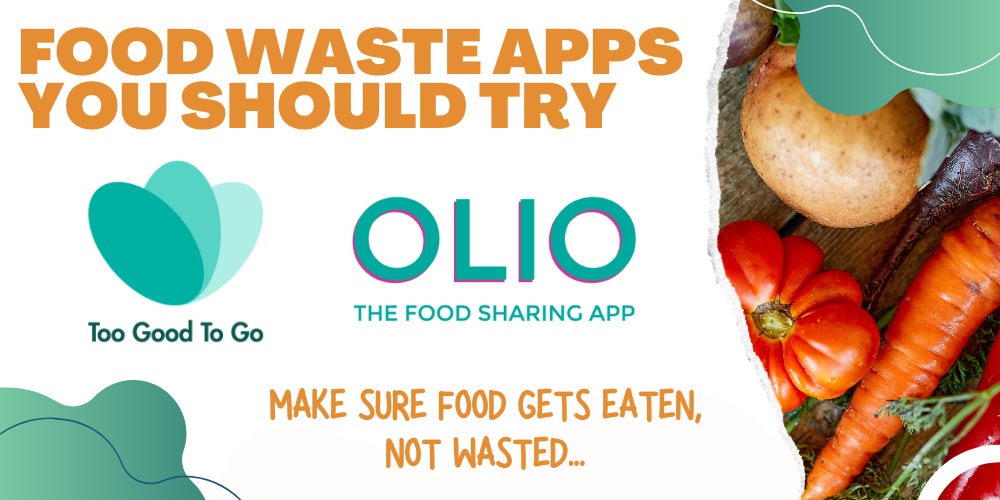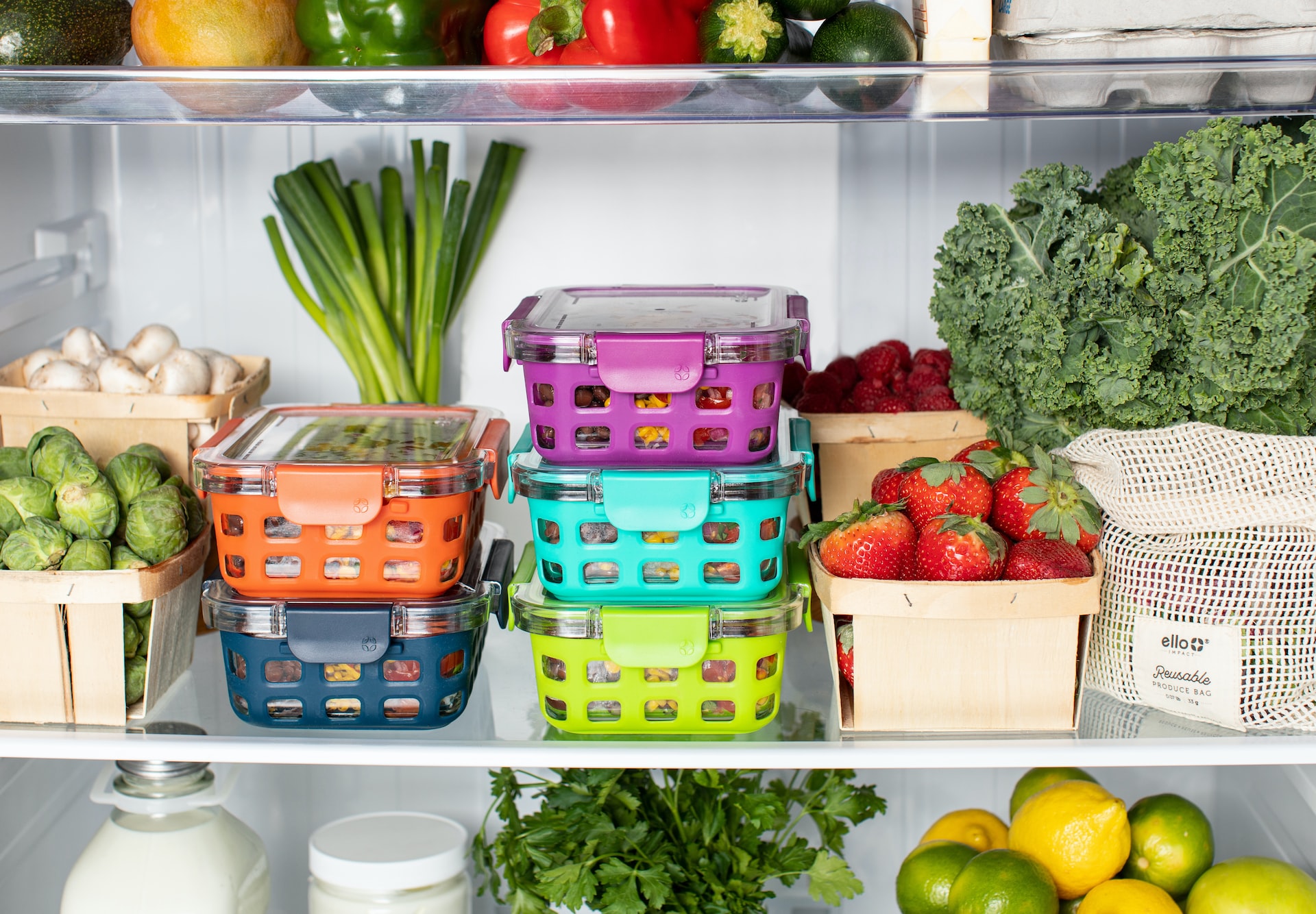Food waste continues to be a global issue with almost one-third of the world’s food going to waste each year, according to WRAP. In the UK alone, about £19 billion worth of food is thrown away each year. A lot of this is due to standards set by supermarkets and restaurants, but there’s also a fair amount of household waste. Consumers are partially responsible for sending perfectly good food and drinks directly from their kitchen cupboards into the bin.
Food waste contributes around 8-10% of man-made greenhouse gases! Reducing food waste has other benefits as well, such as lowering your grocery bill by buying only what you need and keeping your kitchen cleaner.
Luckily, there are many things you can do at home to reduce your own food waste – both in terms of volume and variety of foods wasted. Here are some ways that you can reduce your personal food waste at home:
Plan Your Meals
One of the best ways to reduce food waste is by planning your meals. This means making a list of the meals you want to cook for the week and then buying just enough food for those meals. While it may seem like a hassle, it’s actually beneficial in many ways.

Firstly it helps you to avoid overbuying food at the shop. It can be very easy to walk into a supermarket and come out with multiple bags full of food – but then have no plans to make meals with it!
Know When Foods Go Bad
Knowing when certain foods go bad is the number one way to reduce food waste! For example, raw meat and fish usually only last a few days before they go bad. On the other hand, things like fruits and vegetables usually last a little longer– but are best eaten sooner rather than later. Some foods, like potatoes and eggs, can last several weeks in the fridge (or even in a drawer!) without going bad.
But, by knowing what to expect, you can plan to cook or eat those foods before they have a chance to go bad. One easy way to check which foods go bad faster is by looking at their sell-by dates. This is an indicator of freshness, but not a guaranteed expiration date. If food has spoiled, there will be obvious signs. For example, sour milk, a rotten smell coming from the fridge, and mould growing on food are all signs that something has gone bad.
Freeze Food You Can’t Eat
If you want to use food before it goes bad but don’t have the time to cook it, consider freezing it! Frozen veggies and fruits are just as healthy as fresh produce, and it can be a great way to extend the lifespan of your food. It’s also an easy way to mix up your meals later on. When you want to use frozen produce in a recipe, just leave it out of the freezer until it’s thawed enough to use.
Frozen meat and fish will last a lot longer than fresh produce, but it’s best to just use it when you want a quick meal or snack. There are a lot of foods you can freeze that you wouldn’t expect to be able to: bread, vegetables, cooked pasta, even milk!
The rule of thumb when freezing foods is not to freeze foods with a high water content, so things like salad or cucumber.
Use Food Waste Apps

Olio
Olio is a platform that allows neighbours to share unwanted food and items, all for free. People are free to share or pick up anything from an unwanted gift, produce past its date from a local store, leftover catering supplies or excess food from a holiday. Olio also partners with catering, hospitality and retail businesses to pick up surplus food 24/7 and send it out into the local community.
Too Good To Go
Too Good To Go helps restaurants, cafes, and bakeries sell leftover food that would otherwise be thrown away. The app is free and allows users to specify their dietary requirements. The company also works with businesses in the food industry to help them look at their individual food waste problems. Too Good To Go is a certified B Corp (from our list of trustworthy sustainable certifications) who also pushes for legislation to clear up confusion around food labelling and works to educate people on food waste.
Don’t Buy More Than You Need
This might seem like a no-brainer, but buying too much food can contribute more to food waste than any other mistake. This can happen when you’re shopping or when you’re meal planning. If you shop when you’re hungry, you’re more likely to buy more than you need.
While it’s okay to buy a little extra for a busy week, buying 10 loaves of bread and a dozen heads of lettuce is going to leave you with a lot of wasted food. Buying only enough for your meals is the best way to reduce food waste.
This doesn’t mean that you have to eat plain meals every night, though. It’s easy to mix and match foods, so you can have a variety of different meals without wasting food.
Adjust the temperature On Your Fridge
We saved the easiest until last! Keep your food fresher for longer by changing the settings on your fridge.
The temperature in your fridge is important to keeping food fresh, but it can also play a part in food waste. The average fridge in the UK is set to chill at 7°C to save energy, but actually, your fridge should be at 5°C or below to keep food fresh.
However, it’s also important to adjust the temperature of your fridge depending on what you’re storing inside. For example, fruits and vegetables like carrots, celery, lettuce, and potatoes will stay fresh longer in the fridge if the temperature is slightly warmer. Some produce, like bananas, apples, and pears, actually ripen when the temperature is too high.
Keeping the temperature of your fridge at the correct level will keep your food fresher for longer, and you’ll waste less.
Benefits of Reducing Food Waste
Reducing food waste not only helps you save money, but it also reduces reduces your carbon footprint. With the tips above, and most importantly the right attitude it’s easily possible to avoid throwing away food, and help fight global food waste. While shopping and meal planning can be difficult at first, with a little bit of practice, you’ll be able to use these skills to minimise your food waste.





